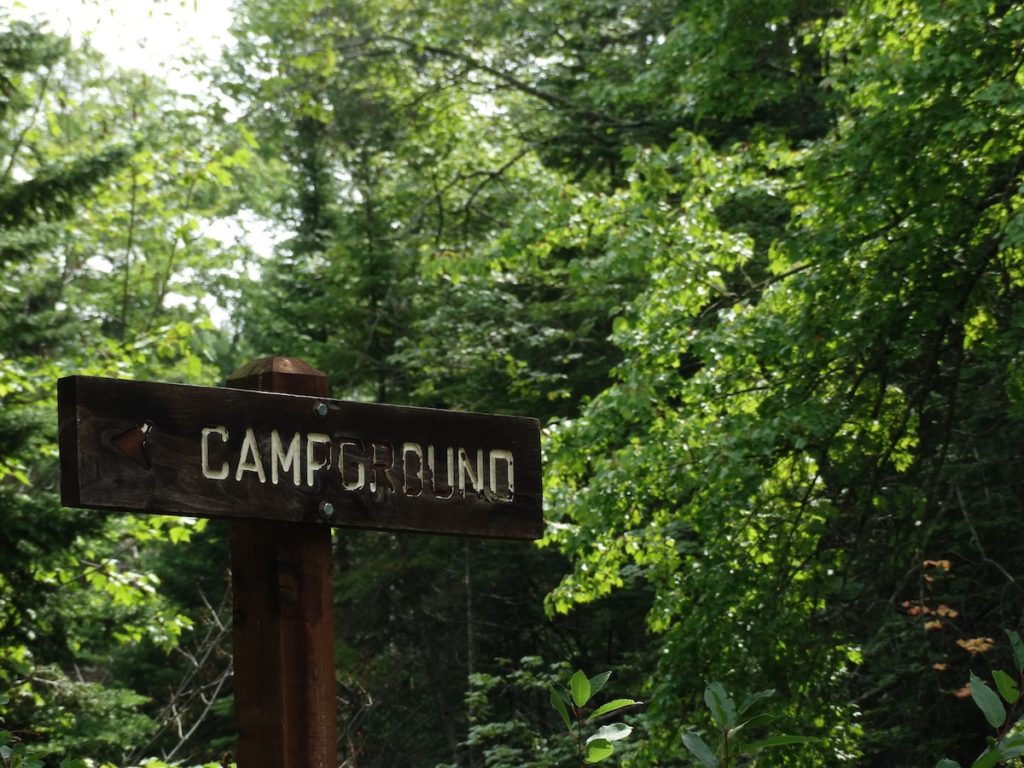For the longest time, we swore off seasonal camping. It was never us. We love to travel and move around, which meant staying stationary was off our radar. Until it wasn’t. This year, we become seasonal campers. And there were some very good reasons why. After taking the leap, we’re here to help you decide if seasonal camping is worth it. And some things you may just want to consider.
1. Justifying the costs
This is one of the biggest deterrents for most people when contemplating a seasonal campgrounds. They don’t come cheap. The cost for a seasonal campsite can range from $2,000 – $5,000 or even higher depending on the campground and location. Some locations have longer camping seasons, which can drive up the costs. The average is probably right around $2,500 – $3,500, but again this will depend on the campground and associated amenities. This can be a tough pill for many people to swallow (especially when you’ve already invested a lot into the RV itself). But consider this:
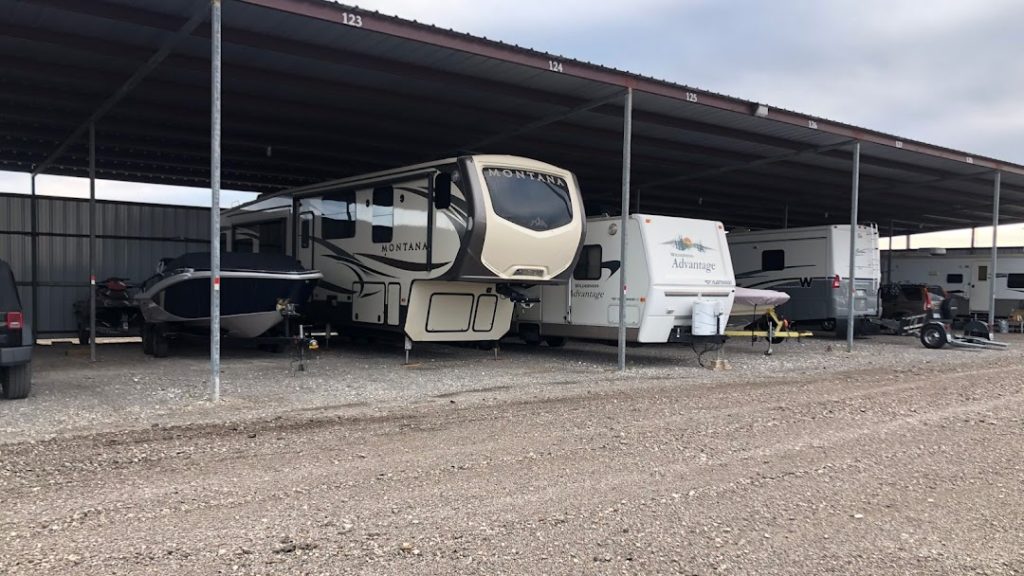
How do you store your RV?
For us, storing at home is not an option. We were already shelling out large sums of money to store our camper year round. And as it turns out, paying for a seasonal campsite that includes storage didn’t cost much more than storage alone. So we may as well get the added perk of having a place to camp every weekend. If you store your camper at home or storage costs aren’t that expensive where you live, this may not tip the scales too much.
What do you normally spend on a summer vacation?
If your typical summer vacations cost in the neighborhood of $2,000 – $5,000, you are looking at the roughly the same cost for a seasonal campsite. The main difference is with seasonal camping, you can vacation for several months vs. one week long vacation. It helps put the cost in perspective when you look at it this way.
Don’t forget the extra costs
When you’re doing your research for seasonal campsites, ask about all the fees that aren’t included. For instance, it’s normal for seasonal campsite owners to pay for electric usage separately. You may also have to pay for water. Or amenities like lawn mowing. Make sure you consider the financial aspect from all angles and not just the campsite cost.
2. How often do you plan to pull your camper out?
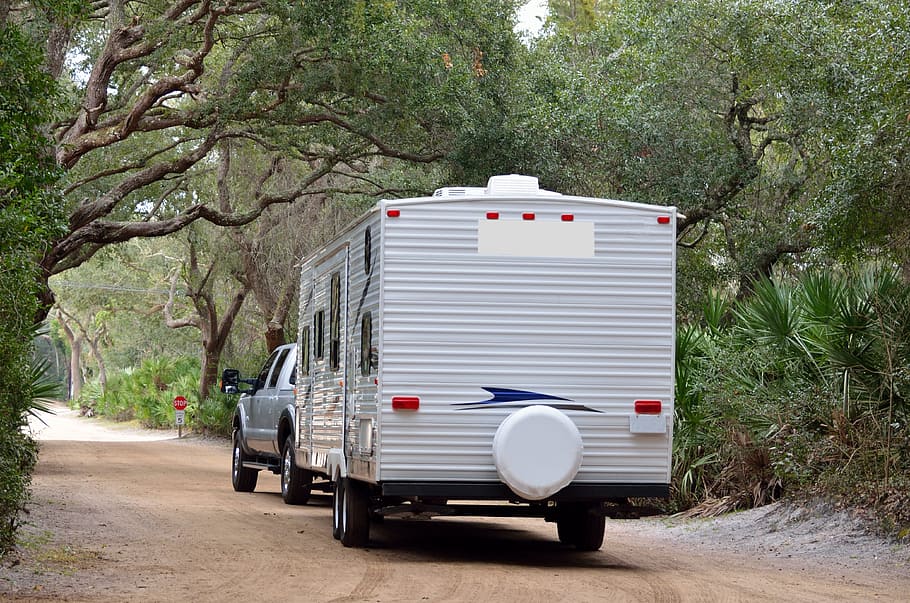
For us, we wanted a nice mix of seasonal camping and traveling around. That means we’ll have to pull the camper out of our seasonal site fairly often. It’s important to figure out if you plan to leave your camper at its site or take it out occasionally. There are a few reasons why it matters.
You’ll add weight really easily with a seasonal campsite
When you’re stationary somewhere, you tend to amass more things than if you move around a lot (like these fun RV accessories). You are probably spending more time in your camper, which means you’ll end up purchasing appliances, extra bedding, outdoor decor, toys if you have kids. It adds up fast. And it’s not a bad thing. It just means if you plan to move your camper, you’ll need to be aware of all the extra weight you’ve added to make sure you’re still under tow capacity.
It can also be tougher to get out of sites at some campgrounds. We specifically chose a campground that we could move in and out of without too much hassle. If you plan to take your camper out, make sure to choose the right campsite that will allow for this.
Determine a plan to store items while you’re away
If you’re leaving your camper in its spot, most things can probably be stored inside. But larger items will need to be secured. Think about finding a spot with a shed or bringing your own. Some things you can leave out in the open (like firewood), but for others, you’ll want them under cover. Remember to secure anything that could be damaged in rainy or windy weather conditions.
Related: Tent Camping vs. RV Camping: Which Is For You?
3. You’ll save time on the setup
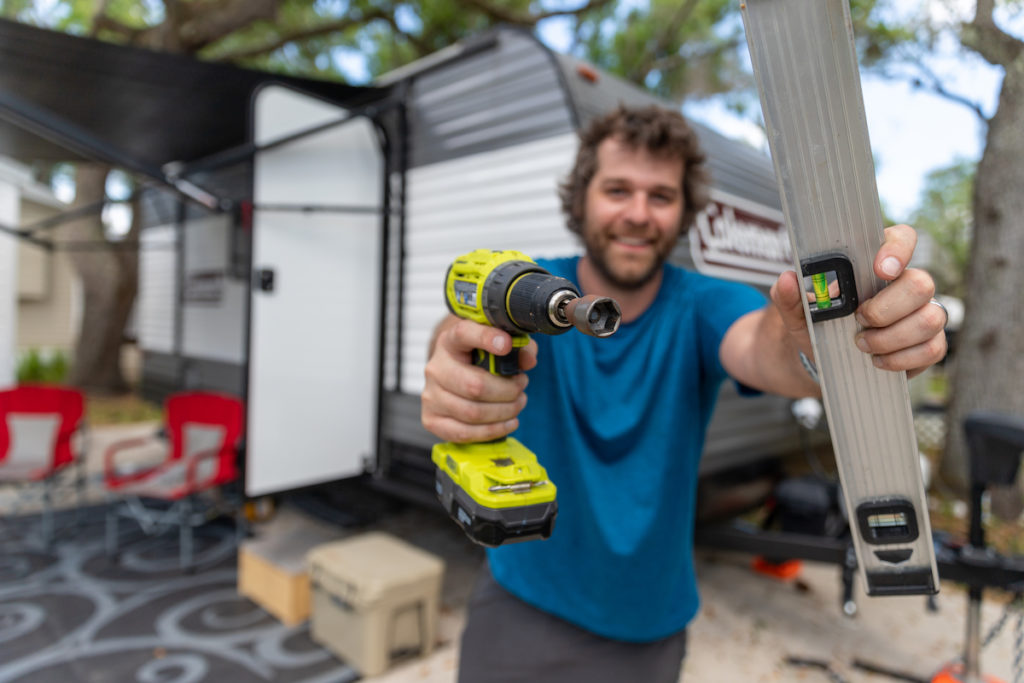
The hustle of driving to your campground and racing the clock to get set up before dark – it’s no joke. One of the biggest advantages to choosing a a seasonal campsite is for the most part, you set it up once. Now if you want to drive to your site on a Friday after work, there is very minimal effort on your part to get settled once you arrive. Which means more time camping and less time doing all the less fun things. Perfect for those who love the last-minute pack up and go life.
Packing becomes so much less stressful
When you’re traveling around in your RV, packing gets a little easier, but there’s still so much to remember. And packing lists only somewhat help. Inevitably you’ll forget something. Which we’ve always been fine with because you’re never far from a Walmart.
But with seasonal camping, the packing becomes less and less. If you’re anything like us, you’ll buy a second toaster and a second coffee pot. And you’ll end up leaving a lot of things there. Which is a good thing, because that means less packing for you. We typically pack food and clothes and everything else is there waiting for us.
4. There is maintenance associated to seasonal camping
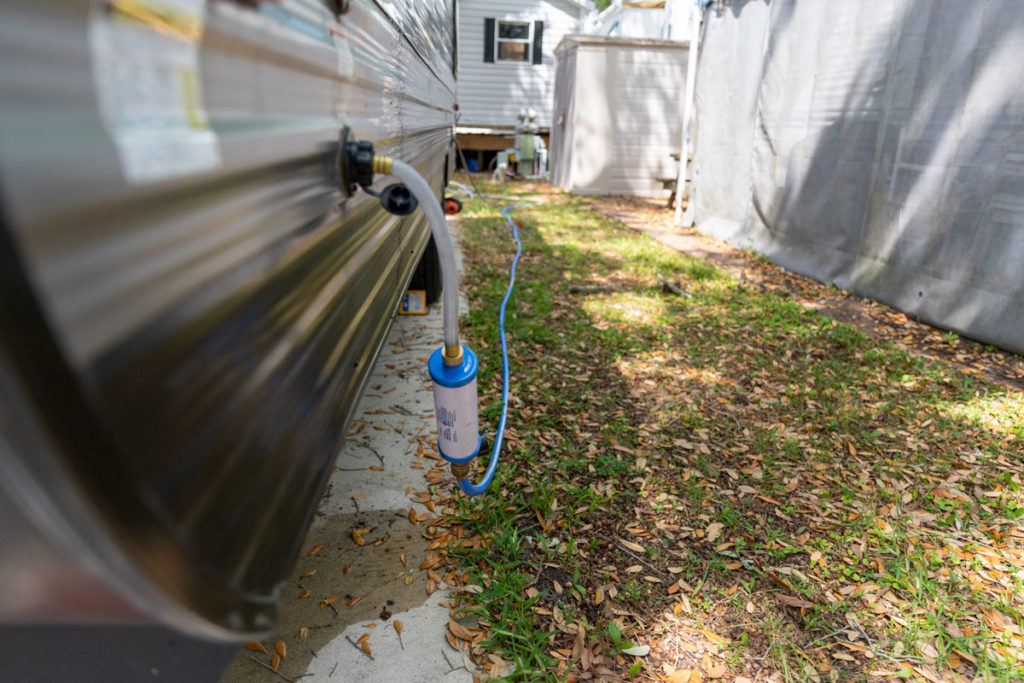
One of the easy parts to traveling between different campgrounds is there’s relatively zero maintenance. Pick up your trash. Leave your campsite clean. And that’s pretty much it. But seasonal campsites are a whole different ballgame.
Most seasonal campers will do some additional maintenance
There are variations on this, but you’ll need to do some amount of work. The campground may mow your yard for you or you may have to do it yourself. If you do any gardening, you’ll need to water your plants. You’ll probably also want to inspect your camper more often for any possible weather damage while you were away. Plus, things tend to fall on the roof more often. These aren’t generally a big deal, but just think about some of the additional maintenance work that goes into owning a seasonal campsite.
5. The Social Aspect
One of the biggest draws to owning a seasonal campsite is making new friends. When you’re hopping from campsite to campsite, there’s really no time to make friends. But when you’re spending a lot of time at the same campsite, you’ll make friends a lot quicker. And this can be a major perk because with seasonal camping you can meet up with the same groups of people. It also creates a community type atmosphere as fellow campers tend to help each other out.
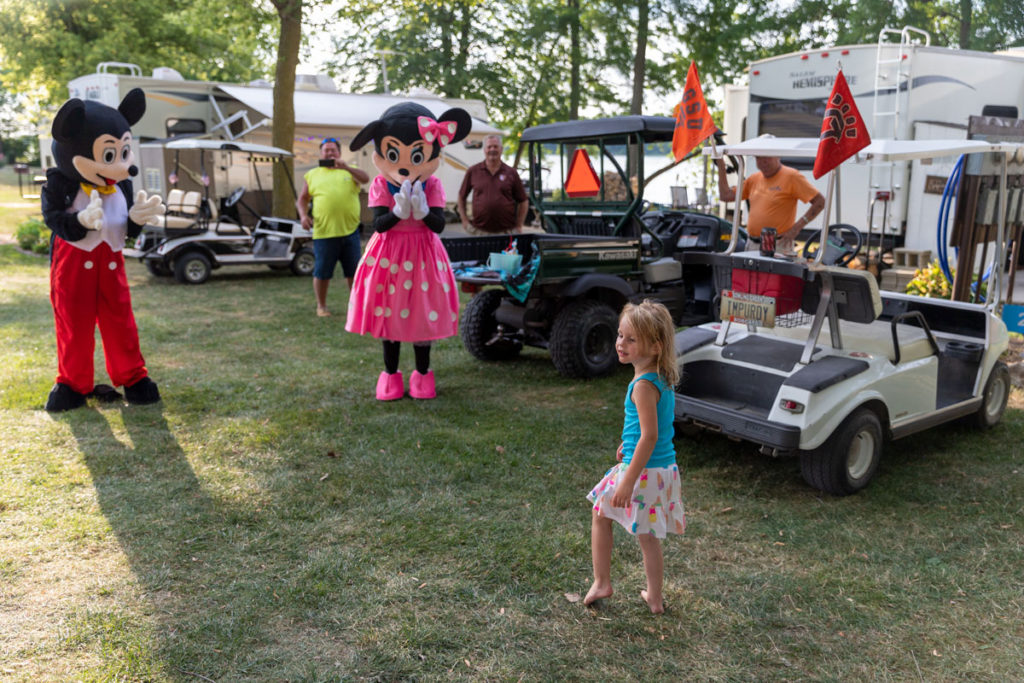
It can also be more fun for kids
If you have kids, no matter if they are toddlers or teenagers, the same social benefit still applies. Your kids will have the chance to form friendships and every weekend they come to the campground, they have chance to meet up with their friends. This can add to the camping experience if your kids have their own social circle rather than hopping from campsite to campsite.
Though I must say, there is something to be said about traveling and meeting new RVers. They both have their place!
Many campgrounds have themed weekends
Another of the more fun parts to seasonal camping is the themed weekends. Almost all campgrounds have some level of entertainment. Whether it’s trick or treating in the fall or Christmas in July. It adds to the fun when you can decorate your camper and participate in an array of activities. You’ll also find these themed weekends at places like Jellystone.
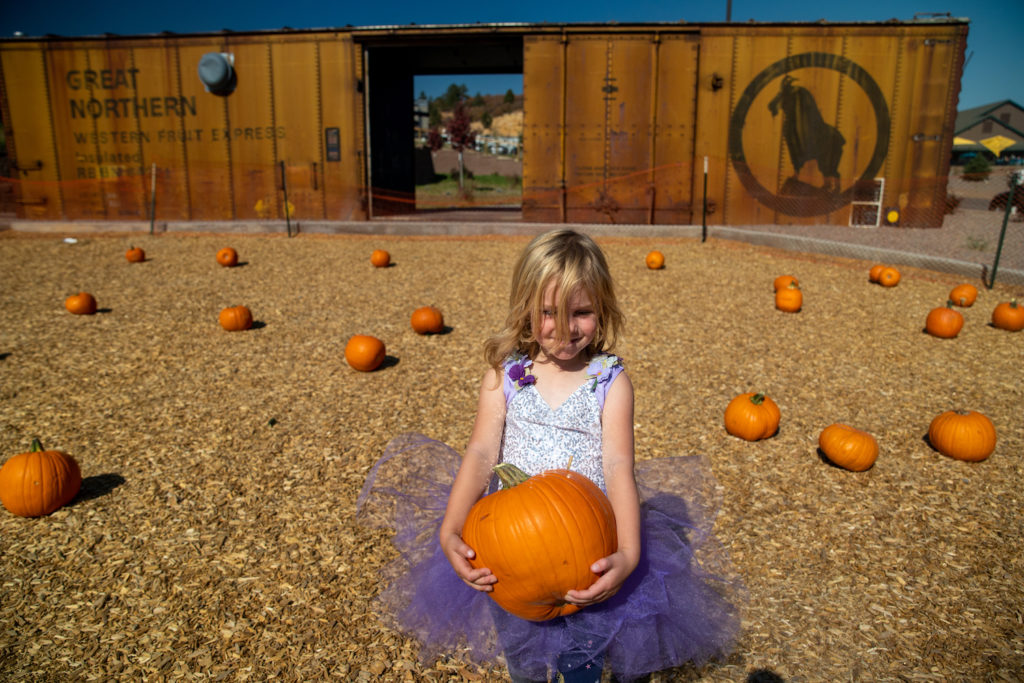
Is Seasonal Camping Worth it for You?
There are a lot of factors at play. It’s more than deciding whether you prefer to travel or remain stationary. And there is no one size fits all answer. Think about it from a budget perspective. And whether community is important to you. How far do you want to travel from home? Do you like to plan your trips in advance or head out last minute? All of these questions will help you determine whether seasonal camping is for you.
One piece of advice I can give you – it never hurts to try. Paying for a seasonal campsite isn’t like investing in a vacation home on the beach. Lucky for you, your home is on wheels and you can move it anytime you want. If you’re on the fence, try it for a year. See how you like it. If it’s not for you, don’t renew your spot next year.
Ok, It’s for you. Now What?
Your work doesn’t stop when you decide to take the plunge into seasonal campsite ownership. Now you have to find a campground. And not all seasonal campground are created equal.
How to find a seasonal campground near you
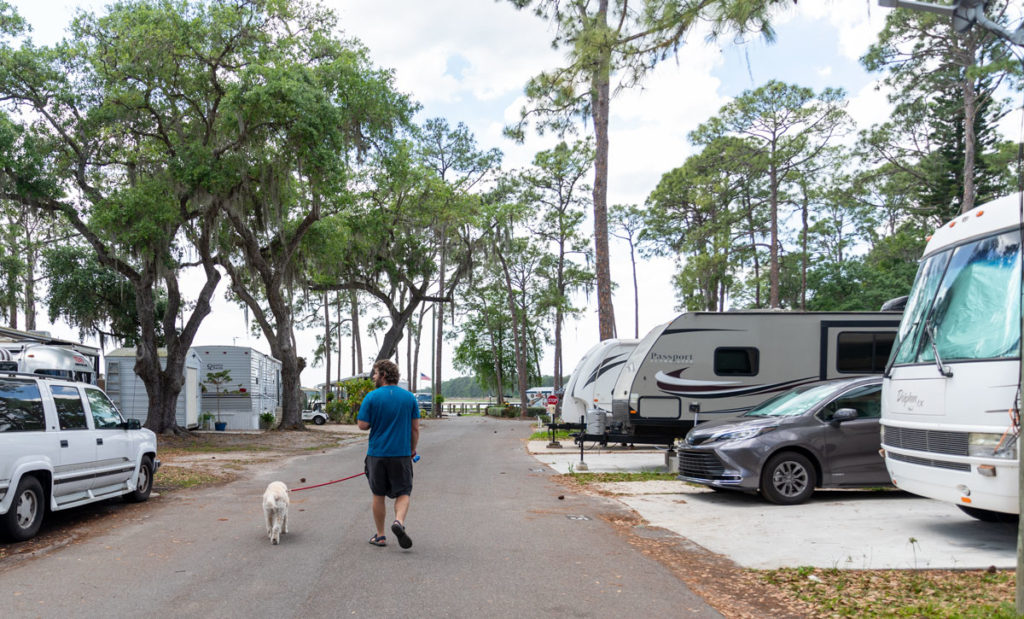
Sometimes it takes a TON of research (unless you live in an area with an overwhelming amount of seasonal campgrounds. So here are a few tips:
- Is there are campground you already love? If so, call and ask if they have seasonal sites. Even if the campground isn’t 100% seasonal, a lot of places will have a portion dedicated to seasonal campsites
- Google this: seasonal campgrounds near me. Sounds obvious, but Google is often your best tool to research all the campgrounds in your area that allow seasonal campers.
- Ask for recommendations. Find a Facebook group for your community (if you aren’t already part of one) and ask for experiences. Often you’ll get some new suggestions and reliable feedback. You can also ask friends and family where they’ve stayed in the past.
The interview process
Just like buying a house or choosing a daycare, you want to vet your options. Call around and ask if you can check out the place. When you get there, know what information you want to leave with. Here are some ideas to get you started:
- What are the campground opening/closing dates? Do they pro-rate the fee if you are reserving later in the season?
- What kind of activities and amenities do they offer?
- Can you do a trial run? Some campgrounds will allow you to stay for a night to get a feel for the atmosphere. Or reserver a night or two on your own to make sure its right for you.
When you’re touring the campground, talk to other seasonal campers. You’ll get an idea for the community and age groups. For instance, we wanted to make sure there would be other families so our kids could make friends. But you also want to ask if other campers are happy with their experiences. This is truly the best way to gauge whether you’ll like a campground. Campers are usually super honest!
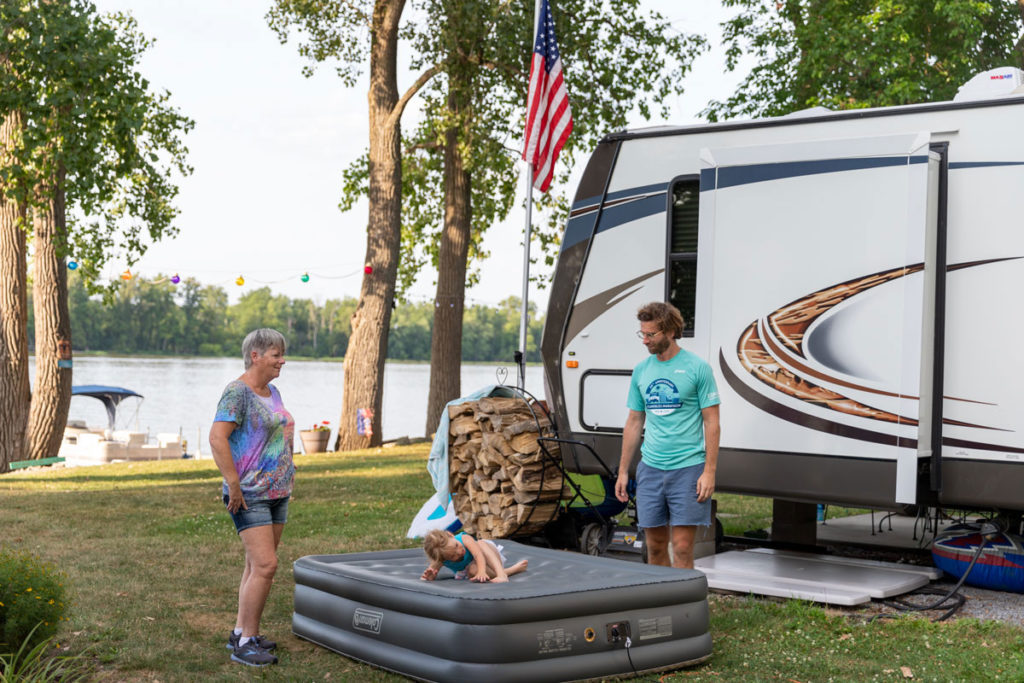
You will also want to ask which spots are open so you can decide if you’ll enjoy your setup. We visited campgrounds where all the spots were so different with varying levels of shade and space). Plus, will your spot be surrounded by other seasonal campers?
Drive around and check out all the amenities. Do they seem well-maintained. Campgrounds will vary in how maintained they tend to be and this can be a big factor in your decision. Also check out the local area outside the campground. You may want to be close to a grocery store, park, restaurants, etc.
Seasonal Camping Isn’t for everyone
But even if you don’t see yourself as the seasonal camping type, there are many advantages. We never thought we’d wind up tied to a seasonal campground until we tried it and loved it! And the beauty is – you can travel and have a seasonal spot. Who says you have to pick?

